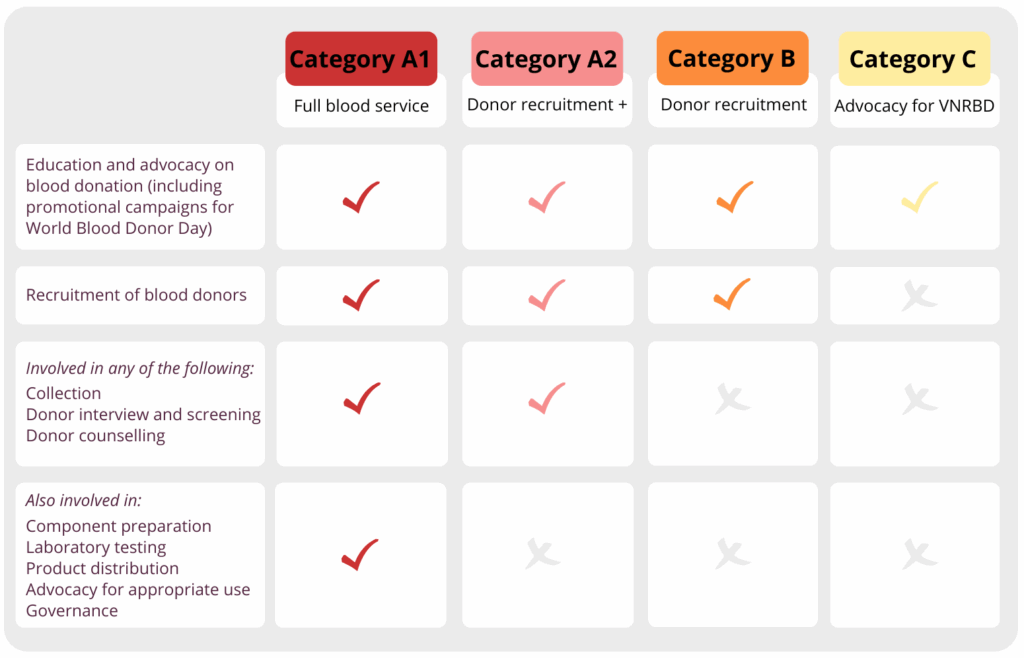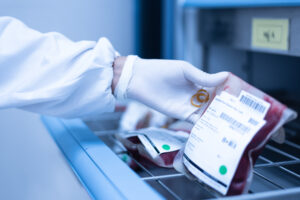Self-Assessment
GAP’s primary tool to assist National Societies in ensuring they have appropriate measures in place to support the long-term stability and sustainability of their blood program.
National Society involvement in blood
The World Health Organisation recognises that it is the responsibility of governments to ensure a safe and adequate supply of blood. However, in some countries the government may delegate the provision of one or more components of the blood program to the Red Cross or Red Crescent.
The extent of National Society engagement in blood programs ranges from national responsibility for collection and supply, to promotion and advocacy for voluntary blood donation (or they may have no involvement).

Ensuring safety and sustainability
The IFRC Blood Policy states that National Society blood programs have a responsibility to regularly complete the GAP Self-Assessment questionnaire to assess whether they have appropriate measures in place support the long-term stability and sustainability of their blood program. The Self-Assessment tool enables National Societies to measure their progress and improvement against a number of selected criteria identified as fundamental aspects of corporate governance and risk management.
National Societies that complete the Self-Assessment receive a tailored individual report with an analysis of their results, highlighting potential risk management issues which may need to be addressed. The report also offers recommendations and strategies that can be incorporated into organisational and risk management planning.
For further information and instructions on how to complete and submit the GAP Self-Assessment questionnaire – click on the link below relevant to your blood program.

Category A Self-Assessment
For National Societies involved in full blood services (recruitment, collection, testing, processing and distribution of blood and blood products)
Click the links below to download:

